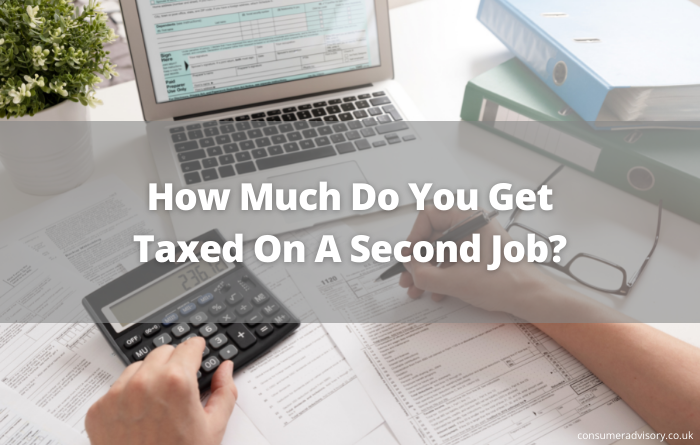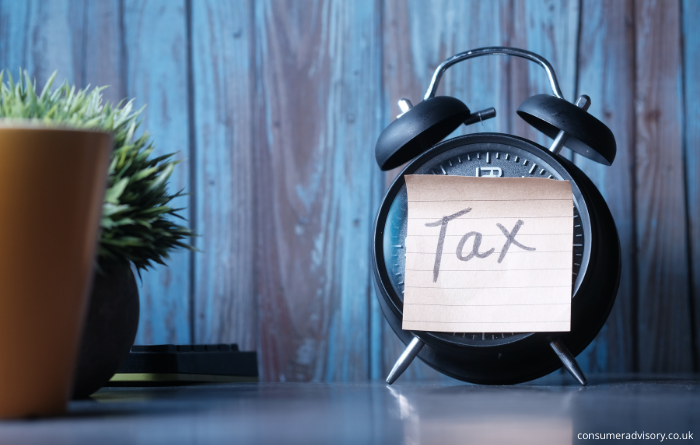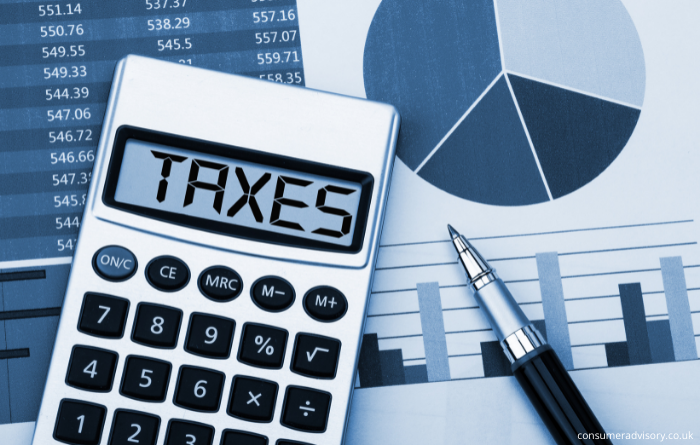
How much do you get taxed on a second job? This will depend on the amount that you earn from each of your jobs. This is because your tax rate depends on your total earnings, rather than the number of jobs that you have.
In this article, we’ll tell you everything you need to know about working a second job, from how much tax you can expect to pay to whether you’ll need to tell your employer that you’ve taken on a second job.
Do You Get Taxed More If You Have Two Jobs?
The amount of tax that you pay is based on your total taxable income. This means that if you earn £50,000 from your first job and £10,000 from your second job, you’ll be taxed at the same rate as someone who only has one job and earns £60,000.
However, it’s important to note that you’ll still need to pay National Insurance on both of your jobs. The amount of National Insurance you pay depends on how much you earn, so if you’re earning £60,000 in total, you’ll pay more National Insurance than someone who only earns £50,000.
What Is The Second Job Tax Rate?
The amount of tax you pay on your second job will depend on the amount you earn and your tax bracket.
If you’re a basic rate taxpayer, you’ll pay 20% tax on your second job. If you’re a higher rate taxpayer, you’ll pay 40% tax on your second job. And if you’re an additional rate taxpayer, you’ll pay 45% tax on your second job.
Remember, your tax bracket is determined by your total taxable income. So, if you earn £30,000 from your first job and £10,000 from your second job, you’ll remain in the basic tax bracket, paying 20% income tax on your earnings above the personal allowance threshold.

Do I Have To Tell My Employer About A Second Job UK?
Whether you’ll need to tell your employer if you take on a second job will depend on your contract of employment. If your contract states that you can only work for the company and cannot take on any other form of employment, then you’ll need to tell your employer about your second job.
However, if your contract doesn’t state anything about taking on other forms of employment, then you won’t need to tell your employer as long as you’re able to complete your contractual hours.
Can I Get Fired For Having A Second Job?
If you’re working full-time and taking on a second job, it’s important to make sure that you can still fulfil your duties at your first job. If you’re finding it difficult to juggle both jobs, or if your performance at your first job suffers as a result of your second job, then you could be at risk of getting fired.
Of course, if your contract specifically states that you’re not allowed to take on another form of employment, then you could be fired for taking on a second job without telling your employer.
How Much Should I Expect To Pay In Taxes On A Second Job?
The amount of tax you’ll pay on a second job will depend on your total taxable income. If you’re a basic rate taxpayer, you’ll pay 20% tax on your second job. If you’re a higher rate taxpayer, you’ll pay 40% tax on your second job. And if you’re an additional rate taxpayer, you’ll pay 45% tax on your second job.
Remember, your tax bracket is determined by your total taxable income. So, if you earn £30,000 from your first job and £10,000 from your second job, you’ll remain in the basic tax bracket, paying 20% income tax on your earnings above the tax free personal allowance threshold, which is set at £12,570 for the 2022-23 tax year.
Can My Employer Stop Me Having A Second Job UK?
If you’re working full-time and taking on a second job, it’s important to make sure that you can still fulfil your duties at your first job. If you’re finding it difficult to juggle both jobs, or if your performance at your first job suffers as a result of your second job, then you could be at risk of getting fired.
Of course, if your contract specifically states that you’re not allowed to take on another form of employment, then you could be fired for taking on a second job without telling your employer.

Do I Need To Tell HMRC I Have A Second Job?
If you are an employee, you do not need to contact HMRC to inform them of your second job. This will be done by your new employer as part of your enrollment.
How Does Tax Work With Two Jobs?
The amount of tax you pay on your second job will depend on the amount you earn and your tax bracket. You won’t need to pay any tax on earnings underneath the tax free personal allowance of £12,570. After this, you will be taxed at the standard tax rate.
The amount of tax you will pay will be based on your total earnings across all jobs.
Second Job Employment Rights
Whether you’re working one job, two jobs or six jobs, you are entitled to the same statutory rights when you’re at work. You should be given a contract of employment for each of your jobs which sets out your job title, your responsibilities, how much you will be paid and what hours you are contracted to work.
You are entitled to be paid at least the National Minimum Wage, and you are entitled to paid annual leave, sick leave and maternity/paternity leave.
Second Job National Insurance Contributions
If you earn above £190 a week in the 2022/23 tax year, you’ll have to pay Class 1 National Insurance contributions. This will be deducted from your wages before you are paid.
If your earnings exceed this threshold in both of your jobs, you’ll need to pay Class 1 National Insurance contributions on your earnings from both jobs.
Can You Be Self-Employed At The Same Time As Employed?
Yes, you can be self-employed and employed at the same time. However, you’ll need to register as self employed with HMRC and complete an annual self assessment tax return. HMRC will then tell you how much tax and national insurance you owe for the previous financial year.
You’ll still pay tax on your employed earnings at source, in the same way as you would if you weren’t also self-employed. When you complete your self assessment tax return, you’ll be asked to declare any earnings from other jobs, as well as any tax that you have paid on those earnings. This will be taken into consideration when calculating how much tax and national insurance you owe.

Is Working Two Jobs Worth It?
It goes without saying that working two jobs can be difficult. Not only is it tiring working for two different companies, but you also have to carefully balance your time, ensuring that you don’t let down either of your employers.
However, for many people, working more than one job is a necessity. This is because it is a second form of income, helping to support a family and pay the rent or the mortgage.
So, whilst working two jobs can be a challenge, for many people it is a reality and is worth it for the additional income they receive.
Why Do I Get Taxed So Much On My Second Job?
If you’re wondering why you get taxed so much on your second job, it’s because your tax is calculated on your total income from both jobs.
The amount of tax you pay will depend on how much you earn and what tax bracket you fall into. If your second job pushed you into a higher tax bracket, you may notice that you are being taxed at a higher rate for your additional income.
Can I Work Two Jobs Without The Other Knowing?
There is no legal obligation to declare a second job to your employer. However, it’s always best to check your contract of employment to ensure there aren’t any restrictions against working more than one job.
Of course, there’s always a chance that your employer will find out about your second job, so honesty is generally the best policy here!
Is It Legal To Work Two Jobs At The Same Time?
Yes, it is legal to work two jobs at the same time. However, you should check your contract of employment to ensure there aren’t any restrictions against working more than one job.
As long as you’re able to balance your time between both jobs and meet your obligations to both employers, then working two jobs is perfectly fine!
How Many Jobs Can One Person Have?
There is no limit to the number of jobs one person can have. After all, sometimes the extra income is a necessity rather than a choice. However, it’s important to ensure that you are able to balance your time between all of your jobs and meet your obligations to all of your employers.
Working multiple jobs can be challenging, so it’s important to make sure that you’re up for the challenge before taking on too much work! Carefully consider the number of hours that each employer expects you to work to ensure that they will not clash, and that you won’t burn yourself out by working the extra job.
Is It Possible To Work Three Jobs?
Yes, it is possible to work three jobs. However, as with working two jobs, you should carefully consider the number of hours that each employer expects you to work in order to make sure they will not clash, and that you won’t burn yourself out by working the extra job.
It’s also important to check your contract of employment to ensure that there aren’t any restrictions against working more than one job.
Of course, working three jobs is a big commitment and is not for everyone! If you’re considering taking on a third job, make sure that you have the time and energy to commit to it before making the decision.
How Do You Balance A Second Job?
Working two jobs can be difficult, and it’s important to make sure that you’re able to balance your time between both employers.
One way to do this is to create a schedule and stick to it as much as possible. This will help you to ensure that you’re giving each job the attention it deserves and meeting all of your obligations.
Another way to balance a second job is to make sure that you’re efficient with your time. This means using any down-time at your first job to get ahead on your work for your second job, or using your lunch break to make phone calls or do admin work for your second job.
Of course, it’s also important to make sure that you’re taking care of yourself and getting enough rest! Working two jobs can be tough, so it’s important to make sure that you’re taking care of your health both mentally and physically.
What Is The Average Time A Person Stays At A Job?
The average time a person stays at a job is about 4.6 years. Of course, this varies depending on the individual and their situation. Some people may stay in a job for their entire career, while others may move around frequently.
It’s important to find a balance that works for you, and to remember that it’s okay to change jobs if you’re not happy!
In Summary
There is no limit to the number of jobs one person can have, but it’s important to make sure that you’re able to balance your time between all of your jobs and meet your obligations to all of your employers.
If you’re thinking of taking on another job, you might find yourself asking ‘how much do you get taxed on a second job?’. No matter how many jobs you work, your tax calculation will be based on your total earnings throughout the tax year.
